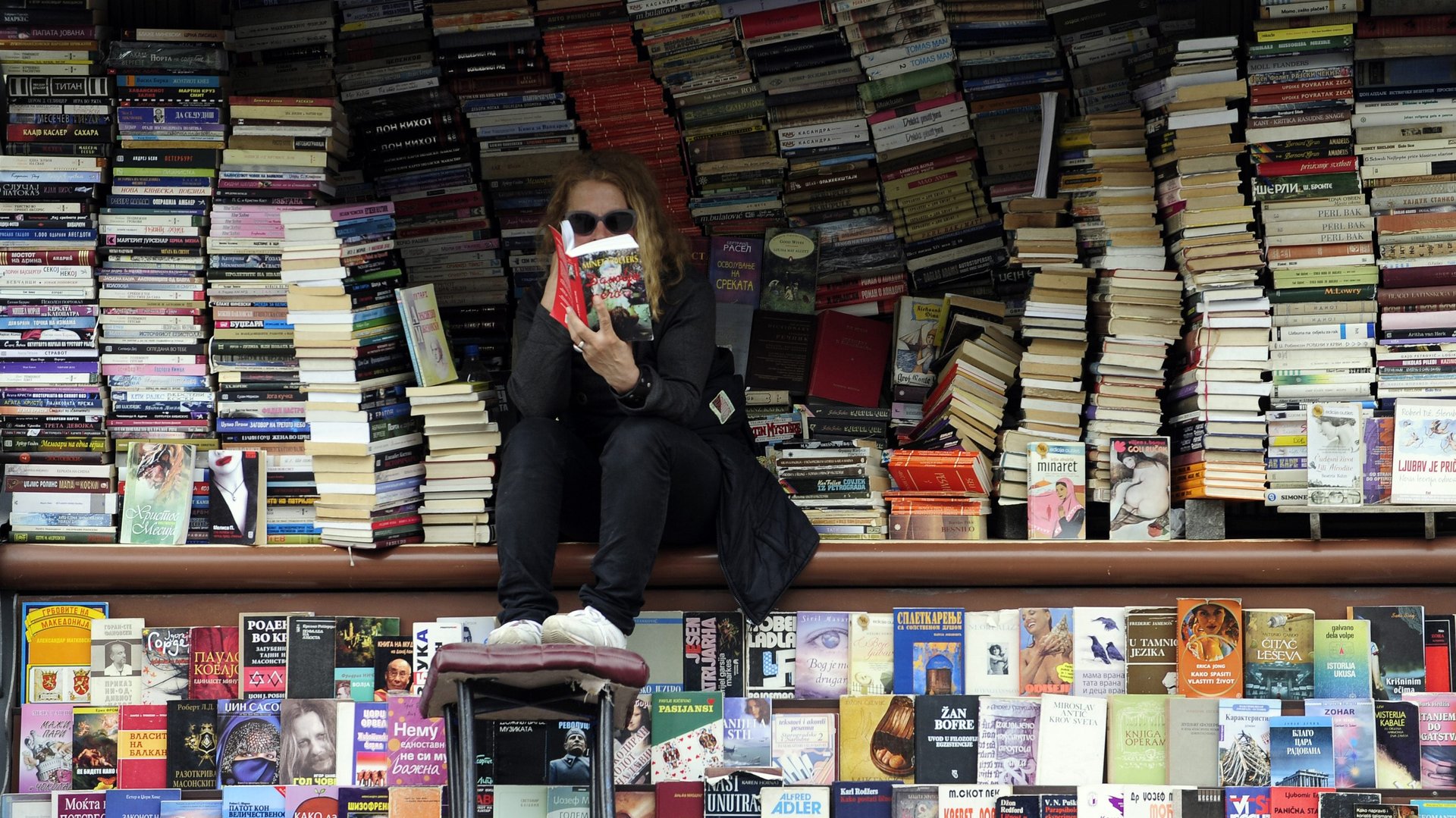Women are horribly under-represented in the world’s top literary awards
America’s prestigious literary prizes, the National Book Awards, were announced yesterday. They drew attention for the fact that the winning writers in three of the four categories were black, and all four winning books confronted the US’s racist past (and present). However, the list of winners also highlights an issue that has long plagued the literary world: the gender gap.


America’s prestigious literary prizes, the National Book Awards, were announced yesterday. They drew attention for the fact that the winning writers in three of the four categories were black, and all four winning books confronted the US’s racist past (and present). However, the list of winners also highlights an issue that has long plagued the literary world: the gender gap.
(That tweet is from none other than the executive director of the National Book Foundation, which awards the prizes.)
We looked at the gender ratio in eight long-running literary prizes around the world. Since 1950, when the US National Book Awards were established, only one quarter of the prizes in its fiction category have gone to women. Katherine Anne Porter was the first woman to win the fiction prize in 1966 for the Collected Stories of Katherine Anne Porter. In 1983, Alice Walker became the first black woman to win the prize for her groundbreaking novel The Color Purple. (That was one of four years when the fiction award was divided into hardcover and paperback, and another woman, Eudora Welty, won that year’s paperback award).
In the same year, Walker also became the first black woman to win the Pulitzer Prize for fiction. The Pulitzer, with 66% male winners, was the second most gender-equal of the eight prizes we looked at—just behind the UK’s Man Booker Prize, first awarded in 1969.
It’s notable that of the awards we looked at, those in English have a much higher proportion of female winners than those in other languages. This seems unrelated to how long ago they were established. (One might have expected a lower cumulative share of women in prizes created long ago, when women suffered more discrimination in general).
Right at the bottom of the gender parity list is the Cervantes Prize, the most prestigious award in Spanish literature. First established in 1976, the award has been given to men 90% of the time. Only four women have won the award so far; María Zambrano was the first in 1988.
The Nobel Prize for literature, set up in 1901, which encompasses all languages, has been awarded to women just 14 times, the first of them being Swedish author Selma Ottilia Lovisa Lagerlöf in 1909. American novelist Toni Morrison became the first (and so far only) black female laureate in 1993.
The Prix Goncourt, France’s top literary prize, established two years after the Nobel, has been awarded to men 89% of the time, and didn’t have its first female winner until 1944: Elsa Triolet’s Le Premier Accroc Coûte Deux Cents Francs (A Fine of Two Hundred Francs). This is surprising, given that French writers dominate literature prizes internationally—they have won the most literature Nobels, for instance. Earlier this month, Leïla Slimani, a French-Moroccan writer, became only the 12th woman to win the award for her bestselling novel Chanson Douce (Sweet Song).
The Georg Büchner Prize, the most important literary prize in Germany, is also abysmal for gender parity. Since 1951 only nine women have been honored. Marie Luise Kaschnitz, a leading post-war writer, was the first woman to be get it in 1955.
Science fiction and fantasy does better on our list. The Hugo Award for best novel, created in 1953, has been awarded to women 30% of the time. Last year a right-wing campaign hijacked the awards, lashing out against women and writers of color, complaining that sci-fi had become too feminist and progressive. Ursula K. Le Guin was the first woman to win the award for her novel The Left Hand of Darkness.
The Man Booker prize, Britain’s leading literary award, is the most diverse on our list, with women receiving the prize 35% of the time since it started in 1969. The first winner was Bernice Rubens, in 1970, for her novel The Elected Member.
It is true that women are winning top literary prizes more often. Of the 17 women who’ve won the National Book Award, seven did it in the last 15 years. But as well as the gender gap in prizewinners, the literary world has to also contend with the gender disparity in the winning authors’ main characters. Novels in which the main character is female win far fewer prizes than novels with a male main character.